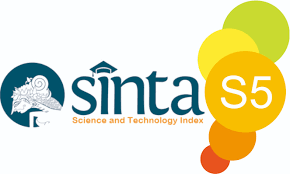Signifikansi Perkembangan Teknologi terhadap Pemerolehan Bahasa Anak Usia Dini
Abstract
This study examines the influence of technological development on early childhood
language acquisition through a qualitative descriptive approach grounded in an extensive
literature review. Data were obtained from recent scholarly sources relevant to the topic.
The analysis reveals a dual role of technology, functioning both as a facilitator and as a
potential barrier to children’s language development. Negative impacts include one-way
communication patterns, reduced social interaction, inaccurate language absorption, and
impairments in speaking and listening skills. Conversely, positive impacts encompass
enhanced linguistic stimuli through interactive media, vocabulary expansion, enjoyable
language learning experiences, and therapeutic potential for children with speech delays.
These findings underscore the critical importance of parental and educator supervision to
ensure that technology use effectively optimizes early childhood language acquisition.



